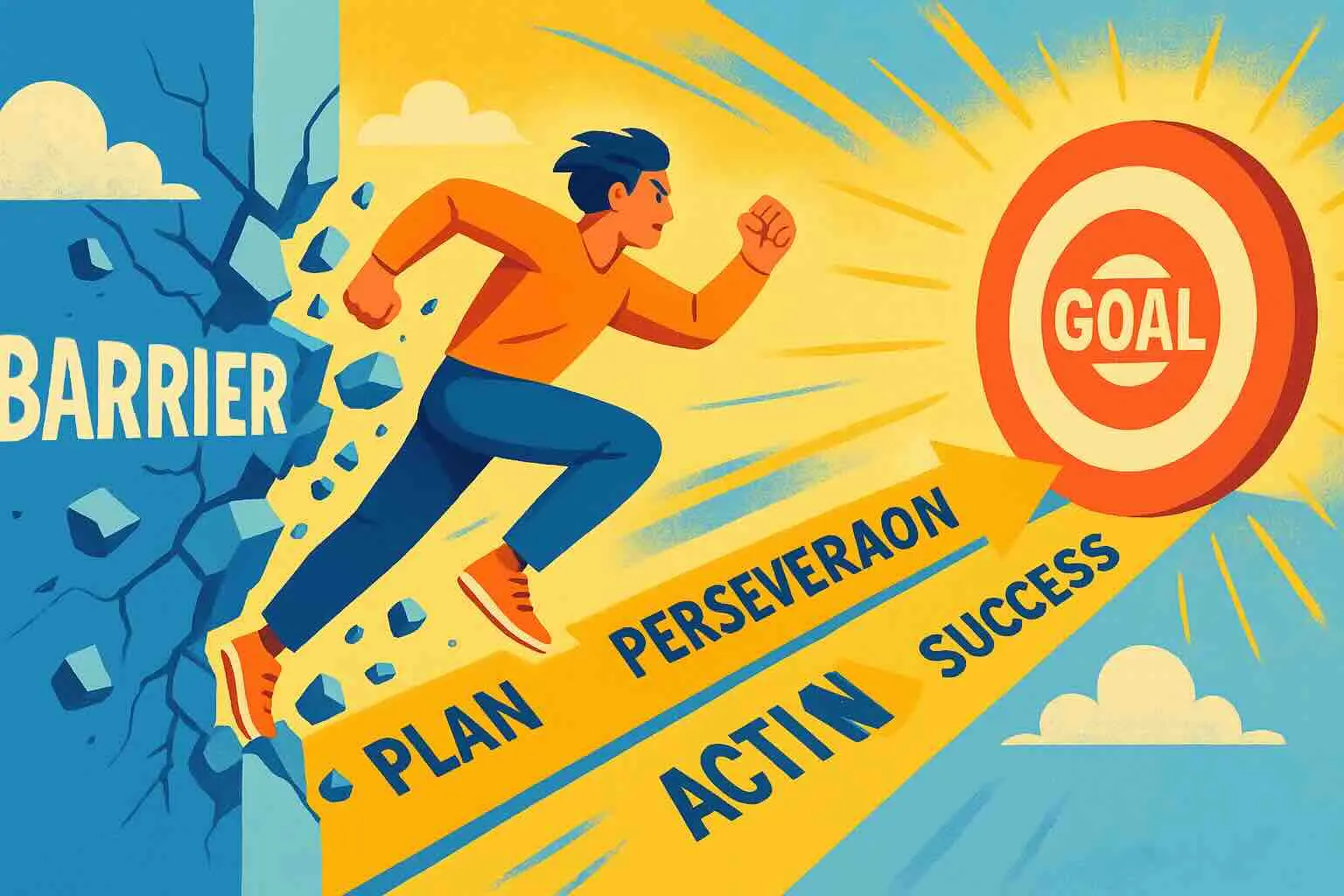What Is Procrastination?
Procrastination is the voluntary delay of an intended task despite expecting to be worse off for the delay. It’s not mere laziness but a complex self-regulation failure often rooted in fear, perfectionism, or emotional avoidance. Up to 20% of adults report chronic procrastination, which can harm productivity, well-being, and self-esteem.
Recognizing the Signs and Types of Procrastination
Common Signs
- Frequent last‐minute work or missed deadlines
- Anxiety or guilt around pending tasks
- Difficulty initiating tasks despite willing intentions
- Time spent on low‐priority activities (social media, TV)
Procrastination Styles
- Perfectionist Procrastinators: Delay due to fear of imperfect outcomes.
- Avoidant Procrastinators: Escape tasks that trigger negative emotions or anxiety.
- Decisional Procrastinators: Struggle to make decisions, stalling action.
Understanding your style helps tailor strategies for change.
Why We Procrastinate: Underlying Causes
- Emotional Regulation: Tasks that feel aversive or anxiety‐provoking trigger avoidance to manage mood.
- Impulsivity and Present‐Bias: Preference for immediate mood repair over long‐term goals.
- Self‐Efficacy: Low confidence in ability to complete tasks reduces initiation.
- Executive Dysfunction: Difficulty with planning, organizing, and sustained focus.
- Perfectionism: Unrealistic standards create paralysis over potential failure.
Evidence-Based Strategies to Beat Procrastination
1. Cognitive Behavioral Techniques
- Cognitive Restructuring: Identify and challenge thoughts like “I’ll do it better tomorrow.”
- Behavioral Activation: Break tasks into small, manageable steps and reward completion.
2. Implementation Intentions
Form “if–then” plans:
“If I finish writing for 15 minutes, then I will take a 5-minute break.”
Research shows implementation intentions increase task initiation by 50–200%.
3. Time Management Methods
- Pomodoro Technique: 25-minute work intervals followed by 5-minute breaks boost focus.
- Time-Blocking: Schedule specific time slots for priority tasks in your calendar.
4. Habit Formation and Environment Design
- Habit Stacking: Link new behaviors to existing routines (e.g., after morning coffee, review your to-do list).
- Minimize Distractions: Use website blockers and create a dedicated workspace.
5. Mindfulness and Acceptance Strategies
- Mindfulness Practices: Develop awareness of avoidance urges without acting on them.
- Acceptance Commitment Therapy (ACT): Accept uncomfortable emotions and commit to values-driven action despite discomfort.
How Noah AI Supports You in Taking Action
Noah AI offers 24/7, personalized assistance to translate these strategies into real-world habits:
- Root Cause Exploration: Interactive prompts identify your procrastination style and emotional triggers.
- Goal Structuring: Guided exercises in setting SMART goals and breaking them into actionable steps.
- Implementation Intention Builder: Step-by-step support for crafting effective “if–then” plans.
- Time-Block Scheduler: Reminders and checks to follow your calendar blocks and Pomodoro sessions.
- Habit Tracking & Feedback: Daily prompts to log completed steps and celebrate small wins, reinforcing progress.
- Mindfulness Moments: On-demand short meditations to manage anxiety before task initiation.
By integrating research-based techniques into bite-sized, interactive sessions, Noah AI helps you build momentum, overcome avoidance, and transform intentions into actions.
Frequently Asked Questions
Q1: Can I stop procrastinating overnight?
Habit change takes consistent effort. Expect gradual improvement through daily practice of bite-sized strategies.
Q2: What if I feel demotivated?
Revisit your values and long-term goals. Use “why” reflection (ACT) and small, fun task components to rekindle motivation.
Q3: How do I choose the right technique?
Identify your procrastination style: perfectionists benefit from cognitive restructuring; avoiders from mindfulness; decisional types from implementation intentions.
Q4: Is digital support really effective?
Yes. Studies show digital interventions with just-in-time prompts increase task completion rates by up to 30%.
Q5: Can Noah AI replace a therapist?
Noah AI complements—rather than replaces—professional guidance by providing consistent, on-demand support for building action habits.
Conclusion
Procrastination stems from complex emotional, cognitive, and behavioral factors, but it can be overcome with targeted, evidence-based strategies. Techniques like implementation intentions, time-blocking, CBT exercises, and mindfulness are proven to enhance initiation and persistence. Noah AI brings these tools into your daily life with personalized coaching, habit tracking, and just-in-time support—empowering you to turn your goals into actions, one small step at a time.
Ready to conquer procrastination?
Download the Noah AI app for iPhone and Android today for guided strategies and 24/7 accountability to transform intentions into achievements.
References
- Steel, P. (2007). The nature of procrastination: A meta-analytic and theoretical review. Psychological Bulletin, 133(1), 65-94.
- Gollwitzer, P. M., & Sheeran, P. (2006). Implementation intentions and goal achievement: A meta‐analysis of effects and processes. Advances in Experimental Social Psychology, 38, 69-119.
- Sirois, F. M., & Pychyl, T. A. (2013). Procrastination and the priority of short‐term mood regulation. Personality and Individual Differences, 54(2), 208-213.
- Rozental, A., & Carlbring, P. (2014). Understanding and treating procrastination: A review of a common self-regulatory failure. Psychology, 5(13), 1488-1502.







